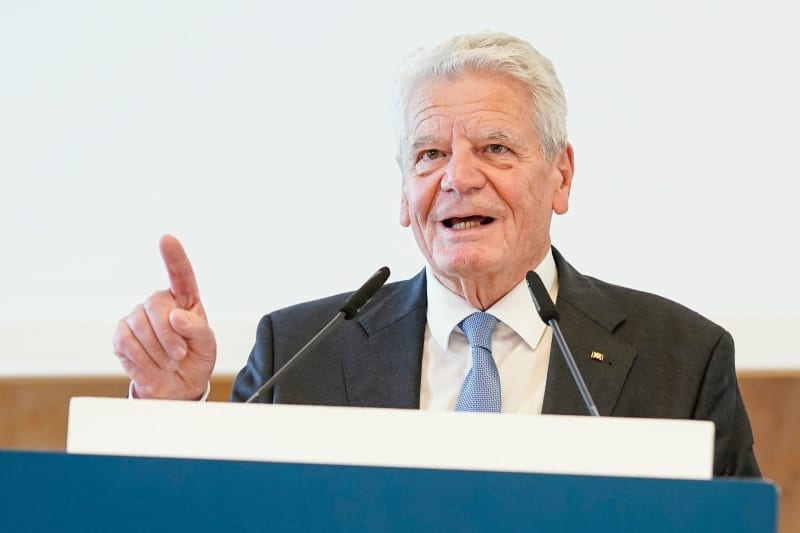“Putin knows that many Germans are quicker to feel afraid than for example the Poles or French, and he is exploiting this tendency,” Gauck, who served as president between 2012 and 2017, said. “Fear is an aide to the aggressor.”
Gauck, a former Lutheran pastor in communist East Germany who played a key role as a rights activist in the run-up to German reunification in 1990, said fear made people unable to see possible solutions to problems.
He argued that Chancellor Olaf Scholz should reconsider his refusal to supply Ukraine with Germany’s long-range Taurus cruise missiles and rejected the view that this would draw Germany into the war in Ukraine.
He noted that experts in international law, military experts and many members of the ruling coalition did not share Scholz’s view on the issue. Kiev has appealed for Berlin to send the missiles, which are reported to have a range of 500 kilometres.
The issue has been the subject of intense debate, with Scholz expressing fears that targets deep inside Russia could be hit if Berlin surrendered control over targeting to Kiev. Moscow would theoretically be in range from northern Ukraine, as would the Crimean Bridge linking the peninsula to Russia.
Gauck enjoys considerable status as a voice of moral authority in Germany after serving as the government commissioner looking into the records of the Stasi, East Germany’s notorious Ministry of State Security.
